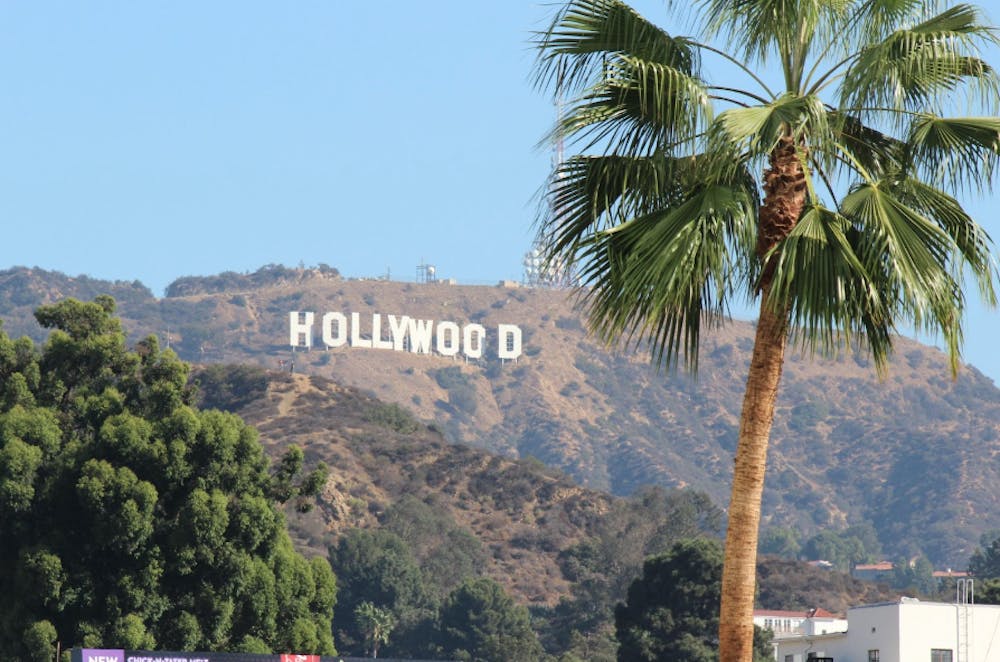By Maia Venuti
Staff Writer
Since the birth of cinema and the founding of Hollywood, there has always been a strong presence of Jewish people. But have you ever sat back and thought about why that is?
As a Jewish American woman, I have become well-versed in the rhetoric of antisemitism over my nearly 21 years on the planet. As an avid moviegoer and film fanatic, I have heard many non-Jewish people make suggestive remarks about the number of “Jews” working in Hollywood, or even outright saying, “the Jews control Hollywood.” As a history major, when I hear these remarks, I immediately know that whoever is making this comment is heavily uninformed or misinformed about the history of Jewish people in Hollywood.
I first want to make it incredibly clear that, yes, there are a lot of Jewish people who work in Hollywood. Yet that does not mean that one can make the massive jump to the conclusion that “Jews run Hollywood.” Statistically, that is not possible. There are approximately 15 million Jews in the world today (about 0.2% of the world population), with roughly 7.6 million living in the United States, meaning Jewish people make up about 2.2% of the American population. There is no way that 2.2% of the American population could possibly run one of the largest industries in the world.
For centuries Jewish people have been ousted from their professions for being Jewish and forced to work in new ones. This is something we have seen as far back as Babylonia, when Jews were forced into roles of bankers and put in financial jobs despite not wanting to work in those areas. We see a similar pattern in why there was and is such a strong Jewish presence in Hollywood.
Jews were excluded from positions of leadership in all kinds of business due to antisemitism and were often forced into the corner of working in finance or trade, as we have been for centuries prior. Working in money lending was seen as a “dirty job,” so many Jewish Americans began to move away from the finance industry and into new industries that did not have such harsh antisemitic regulations against Jews working in them.
One of these places happened to be Hollywood; there were no restrictions or limitations targeting Jewish people in the film and theater industry amid its start in America. Many Jewish people began to leave their jobs where they were mistreated and move into an industry where they would not be discriminated against by non-Jewish superiors. Because of this, many of the founding fathers of Hollywood are Jewish, as well as immigrants, as the start of Hollywood was not long after an influx in Jewish immigrants arrived to America. The founders of Hollywood fostered a comfortable environment for other Jewish people to feel safe working in, which is why there are still so many Jews working in Hollywood today.
But of course, antisemitism, the malignant cancer it is, has spread into Hollywood in the past century, with many becoming suspicious of the prevalence of Jews in Hollywood. Rather than look into the facts and the very simple history of Jews in Hollywood and the statistics, many choose to opt for the easier explanation: we must run Hollywood.
I have experienced more antisemitism in my almost 21 years of life than I would ever like to think about. But some kind of variant of “Jews controlling Hollywood” is probably the thing I hear the most, and I am tired of it. Understanding the history behind a claim so disgusting is often an eye opener for many, as a lot of people genuinely believe that Jews do in fact control Hollywood, as well as other harmful antisemitic stereotypes.
It is time we bury this trope in the depths of hell where it belongs — it should have died years ago if you ask me. Because unlike what Dave Chappelle might think, it actually is that crazy to believe Jews control Hollywood. In fact, it is not only crazy, but harmful, uneducated, and most of all, antisemitic. I hope that one day, we will see the death of this stereotype, and that people will listen to reason, listen to history and not spread the disease that is antisemitism in the film industry.







